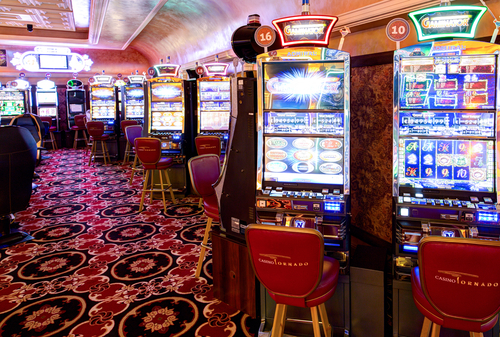
Casino gaming has long been a subject of interest and debate, drawing in millions of players globally. With a mix of luck, skill, and the excitement of uncertainty, casino games offer an exciting escape from everyday life. However, as entertainment becomes ever more accessible, it invites a deeper examination of the ethical implications surrounding these games.
At the heart of the discussion lies the question of whether casinos promote responsible gaming or exploit at-risk individuals. The allure of potential winnings versus the truth of losses can create a challenging dynamic, and understanding this balance is crucial for both players and operators. As we delve into the ethics of casino gaming, we will explore the responsibilities of casinos, the impact on society, and the measures that can be taken to foster a better gaming environment.
The Impact of Casino Gaming on Society
Casino gaming has a significant influence on society, affecting not only the financial landscape but also social behaviors and community structures. The income generated from casinos can lead to employment opportunities and boost regional economies, as they provide numerous employment opportunities in different sectors including hospitality, entertainment, and shopping. However, while the financial benefits can be substantial, communities often struggle with the potential negative impacts that arise from higher gambling activity.
Moreover, the presence of casinos can lead to an rise in gambling addiction, presenting significant challenges for individuals and families. The thrill of casino games can quickly transform into a habitual habit, affecting connections with others and leading to monetary issues. Many individuals may struggle with the loss of control over their gambling behaviors, resulting in a need for community support services and help to address this increasing issue. The social cost of gambling addiction can extend through kinships and neighborhoods, creating an urgent need for sensible gambling approaches.
In addition to the economic and social consequences, casino gaming often showcases cultural attitudes towards uncertainty and entertainment. ww88 It can encourage a sense of joy and leisure, attracting visitors and boosting tourism. However, this allure may also conceal the broader implications of gambling as a form of entertainment, raising ethical questions about its advertisement and accessibility. As communities weigh the benefits and drawbacks of casino gaming, the need for sensible approaches and oversight becomes increasingly critical in ensuring that the positive aspects are enhanced while reducing the potential harms.
Ethical Concerns in Gambling Activities
The morality of gambling gaming often center around the risk for addiction and its effects on people and households. Betting can lead to serious monetary distress, impacting not only the betters but also their loved ones. As people become entrapped in the allure of winning, many lose sight of their budget, which can result in catastrophic results such as bankruptcy. This raises ethical questions about the responsibility of casinos in fostering safe gaming practices and providing support for those who may be dealing with betting addiction.
Another major issue is the advertising of gambling to at-risk populations. Casinos often target low-income people or communities with the promise of fast gains, which can perpetuate cycles of poverty and despair. In this context, the ethics of advertising strategies used by casinos come under scrutiny, as they may take advantage of the need of people seeking an escape from economic troubles. This manipulation raises moral questions about the integrity of the betting industry and its responsibility to safeguard its most vulnerable customers.
Additionally, the effect of gambling gaming on society as a entirety cannot be overlooked. While some argue that casinos create jobs and boost local economies, others point to the social costs associated with dysfunctional betting, increased criminal rates, and a strain on public resources. Balancing financial advantages with the risk for community issues presents a complex ethical dilemma for policymakers and gambling operators alike. The challenge lies in finding a responsible approach that prioritizes the welfare of people and society while still permitting for the enjoyment of gambling gaming.
Regulation Framework and Obligations
The regulatory structure related to casino operations is developed to ensure fairness, trustworthiness, and gambler security. Various government bodies and casino commissions set and implement regulations that dictate how gambling activities function, the guidelines for game design, and the protocols for processing rewards. These regulations change by jurisdiction but commonly involve permit requirements for businesses and stringent measures to prevent cheating and scams.
In furthermore to governing bodies, gaming establishments bear considerable responsibility in preserving ethical standards within their establishments. They must adopt safe gaming practices that promote participant security and education, including presenting self-limitation options and offering information about the hazards associated with gaming. Operators are also responsible for training workers to recognize signs of problem gambling and understand the correct steps to support patrons in need.
Moreover, clarity in gaming operations is crucial for earning and keeping public faith. Gaming establishments should present clear data about the chances of operations, marketing opportunities, and any connected hazards. By fostering an culture of integrity and responsibility, casinos can help reduce the potential negative impact of gambling while improving the overall betting experience for all players.